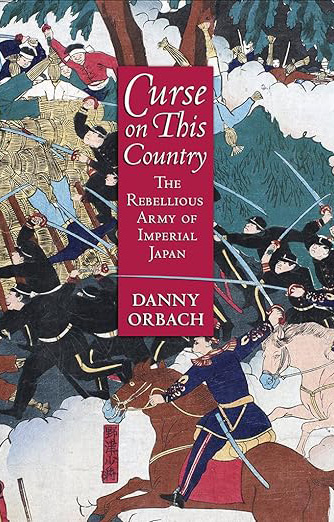Imperial Japanese soldiers were notorious for blindly following orders, and their enemies in the Pacific War derided them as “cattle to the slaughter.” But, in fact, the Japanese Army had a long history as one of the most disobedient armies in the world. Officers repeatedly staged coups d’états, violent insurrections, and political assassinations; their associates defied orders given by both the government and the general staff, launched independent military operations against other countries, and in two notorious cases conspired to assassinate foreign leaders despite direct orders to the contrary.
In Curse on This Country, Danny Orbach explains the culture of rebellion in the Japanese armed forces. It was a culture created by a series of seemingly innocent decisions, each reasonable in its own right, which led to a gradual weakening of Japanese government control over its army and navy. The consequences were dire, as the armed forces dragged the government into more and more of China across the 1930s―a culture of rebellion that made the Pacific War possible. Orbach argues that brazen defiance, rather than blind obedience, was the motive force of modern Japanese history.
Curse on This Country follows a series of dramatic events: assassinations in the dark corners of Tokyo, the famous rebellion of Saigō Takamori, the “accidental” invasion of Taiwan, the Japanese ambassador’s plot to murder the queen of Korea, and the military-political crisis in which the Japanese prime minister “changed colors.” Finally, through the sinister plots of the clandestine Cherry Blossom Society, we follow the deterioration of Japan into chaos, fascism, and world war.

